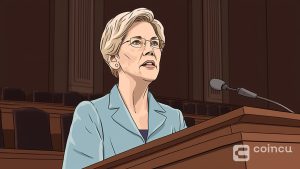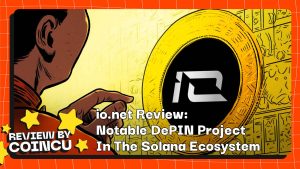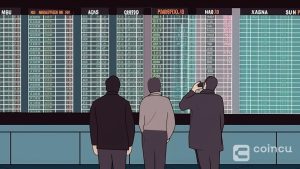
It seems everyone token – from corporate giants like Visa and Anheuser-Busch to social media site Paris Hilton to NBA legends Michael Jordan and Kevin Durant – has recognized the growing importance of brands.
World famous artists, athletes and musicians have benefited from this trend and enabled the legal use of this new technology that enables a wide range of digital assets. But the real test of this innovation will not be how it helps the rich keep their positions of power, but how the NFT can promote human rights and other public goods.
autonomy
Let’s start with the most misunderstood human right internationally – the right to self-determination. That was the basic principle of US President Woodrow Wilson’s Fourteen Points at the end of the First World War, which were enshrined in the Charter of the United Nations in 1945 and included in the Universal Declaration of Human Rights of the United Nations.
And while self-determination grants all “peoples” the right to “freely determine their political status and freely pursue economic, social and cultural development”, the exercise of this right of self-determination was reserved for national liberation movements in order to become completely independent states protracted wars of decolonization. . No other person is required for the application. But now with immutable tokens, self-determination can be exercised more fully outside of the state context.
Voting rights, including access and trust in the electoral process, can be facilitated by unusable tokens, made more accessible, and process democracy strengthened. It’s not too far-fetched to imagine a political world where civil rights are replaced with membership rights embedded in smart contracts. NFT owners can vote on proposals in the wider community of other NFT owners and see changes in real time via smart contracts. Voting on blockchain can solve many real-world problems today, particularly fraud or access to polling stations.
Related: Blockchain will change government services and that’s just the beginning
NFT for governments
There are innumerable ways in which the NFT can facilitate the pursuit of economic, political, and social agendas. In such a system, states would no longer be the sole arbitrator of disputes, arbitrator of property rights, or enforcement of treaties. Smart contracts on the blockchain can do all of that. We could develop a new system in which individuals or political groups (with membership than NFTs) vote on more efficient mechanisms for distributing goods and services, rather than being exercised by traditional, inefficient or degraded bureaucracies. Farewell to politics as always.
After all, we don’t all have to vote secretly if we’re a registered Democrat, Republican, or Independent. We can support gun rights, but we can also leave choices about abortion and vaccines. A person can easily show support for multiple causes simply by controlling all of the underlying NFTs that coincide with group membership. With this shift, we may have more options to define ourselves outside of our own country or even traditional identity politics. We can choose to be part of other communities rather than depending on the jurisdiction and projections of their particular cultural, economic, religious, social or political groups.
Related: Decentralized Parties: The Future of Chain Governance
So self-determination is not about the status of the state. This is quite a step forward when you think about the failed secessionist projects after World War II, when the rebel provinces tried to continue exercising their right to self-determination. The catastrophic civil wars that led to the collapse of the former Yugoslav Soviet Socialist Republic (1990), Katanga (1962) and Biafra (1967) are typical cases.
In the second example, the leaders of Biafra wanted the territory to be their own country, separate from Nigeria. Much of Africa has only recently been decolonized, which is why subsequent separatist movements are seen as a threat to the continent’s political stability. Only a handful of African countries recognized Biafran’s independence, a movement that has failed. An estimated half to two million people died of starvation during the civil war in this wretched self-determination: The fight for human rights has never gone so wrong.
Related: Sustainable NFT charity for 17 UN SDGs
However, Biafra produced its own currency. But the money supply is only one of the tasks of the state as sovereign. Public goods that the state should provide can also include public health, citizen safety, utilities, a clean environment, drinking water, and even staple foods.
As the craze for NFTs persists, we should find ways to capitalize on that craze in order to better develop the mechanisms by which we regulate ourselves and distribute public goods. Michael Jordan, Tom Brady, Paris Hilton, and multinational corporations have enough power and fame.
This article was co-authored by James Cooper and Peter Grazul.
James Cooper is a law professor at the California Western School of Law in San Diego. He has advised governments in Asia, Latin America and North America on regulatory reforms and disruptive technologies for more than two and a half decades.
Peter Grazul is a graduate of Western California Law School and passed the California State Bar Exam in February 2021.
.
.











